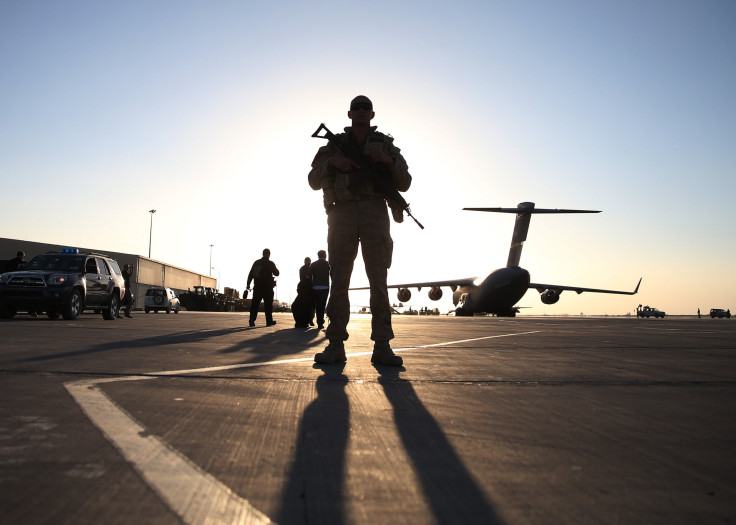Afghanistan War: Obama Signs Secret Order Expanding US Combat Role In 2015: Report

U.S. President Barack Obama has signed a secret order authorizing an expanded combat role for U.S. forces in Afghanistan in 2015, the New York Times reported.
Signed within the last few weeks, the order would allow U.S. forces to carry out combat missions against Taliban fighters who pose a threat to either American military personnel or Afghanistan’s government. It also allows U.S. fighter jets, bomber aircraft and drones to be deployed in support of Afghan troops on combat missions.
The order amounts to a significant expansion of the role Obama previously outlined for U.S. forces in the country in 2015. In May, he announced that 9,800 U.S. troops would remain in Afghanistan in 2015, with that number being reduced by about one-half over the course of the year.
U.S. troops were not to be directly involved in combat missions, but rather assume advisory roles, such as training Afghan forces and helping to guide their missions against the Taliban.
The Times reported Obama’s civilian advisers had pushed the president to confine the role of U.S. forces to fighting al Qaeda, while the military establishment demanded the authority to also target the Taliban and other militant groups, should they pose threats to U.S. or Afghan forces. A senior administration official told the Times, “The military pretty much got what it wanted.”
Obama’s decision may have been influenced by criticism from foreign-policy hawks about the withdrawal of U.S. forces from Iraq, and the ensuing collapse of that country’s military in the face of an assault by Islamic State group forces, as CBS News described.
The Times quotes U.S. and Afghan officials as saying the country’s new president, Ashraf Ghani, was far more open than his predecessor was to working with U.S. forces in fighting the Taliban. Former President Hamid Karzai had imposed strict limitations on American airstrikes in the country, after several incidents in which civilians were killed by U.S. bombs.
Gen. John F. Campbell, the allied commander in Afghanistan, told the newspaper: “President Ghani has reached out and embraced the international community. We have a strategic opportunity we haven’t had previously with President Karzai.”
© Copyright IBTimes 2024. All rights reserved.












